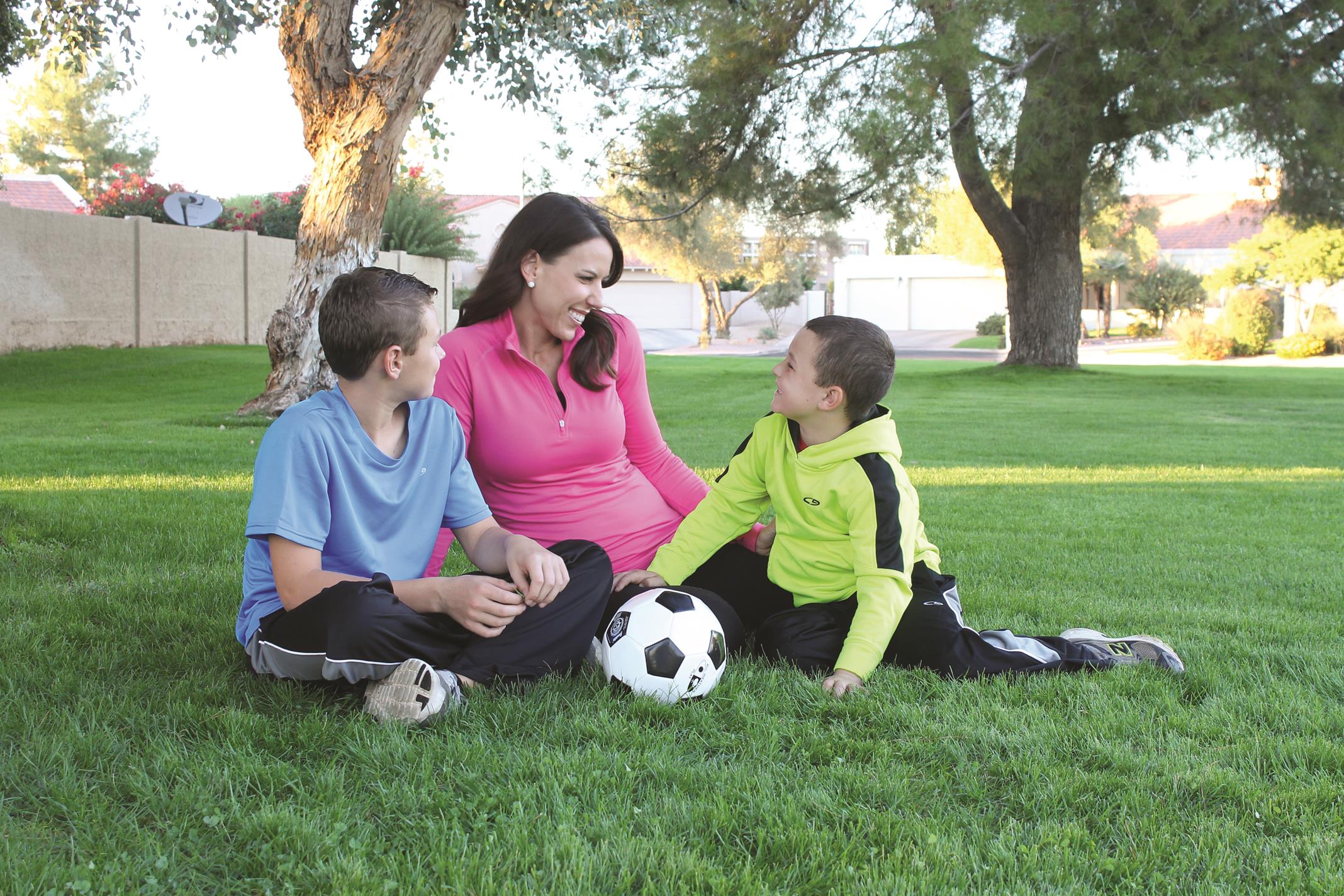
Check back each week for MASK's Dad Dialed In and Minute with Mom series.
They say that with age comes wisdom. In many cases, I believe that to be true. The experiences we have in life shape us. And while we learn from them what to do, sometimes our experiences teach us what not to do.
I remember how much I loved to write when I was a child. My sister and I used to put together the neighborhood newspaper, filling it with feature articles and stories, and distributing it among our friends. One day in elementary school, my teacher handed back a writing assignment, covered in red ink with this comment: “You are certainly a good athlete Kimberly, but your writing…now that’s another story.”
This experience, as well as many others, made me acutely aware of how it felt to be labeled. I was the athlete, not the writer.
The true learning curve, however, came when I had children of my own. I noticed that as they grew, the things I said to them—as well as the things I didn’t say—greatly affected the abilities they perceived themselves to have. I also became aware of how the opinions of trusted others, be it teachers, coaches, family members and friends, either aided or took away from their self-esteem.
The blessing of raising children made me fully realize that when we label people, we limit their potential to achieve amazing things. Being labeled shapes our perception of ourselves. Whatever we are told often creates our reality. When we are told negative and limiting things about ourselves, it can be detrimental to our growth.
How then, as parents, do we help children overcome labels and stereotypes? Here are some suggestions:
Build support networks
Children need words of encouragement. Surrounding them with people who find positive ways to promote their growth is imperative. When children are told that their potential is limitless, they come to believe it. Supporting them in their interests and efforts is essential to building self-esteem. Establishing a strong support network early in life can often negate the ill effects children encounter as they grow up.
Role model behavior
Children pick up on what we say, as well as how we talk about others. They mimic those behaviors. Instead of simply teaching children how to interact, we need to role model the behavior ourselves. Making an active effort to get to know others and keeping an open mind will show our children the importance of kindness and acceptance. If we want them to exhibit those behaviors, we must do them ourselves.
Share words of encouragement
We should be mindful not to criticize our children’s habits, abilities and interests. While they may display certain characteristics we, at times, want changed, the best way to handle that is through positive dialogue. Moreover, we should have open conversations with our children about what they want, what they love and how they can accomplish their goals.
It took many years to convince myself that I could be a writer, and with the support of those closest to me, I eventually chose a career path down that road. Looking back now, I recognize how just a few words from a teacher about who I was and who I wasn’t greatly affected my future. This memory serves as a continuous reminder for me to think carefully about what I say and how I act.
I want, like many of you, happiness for my children. I don’t want them to ever think their potential is limited or perceive themselves as one-dimensional. Each of us is unique with a mix of diverse talents. The best things we can do are recognize others’ strengths and encourage those around us to remember that their goals are only limited by what they think they can achieve.
